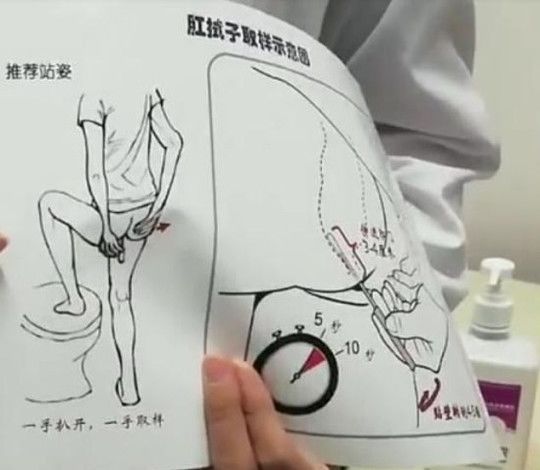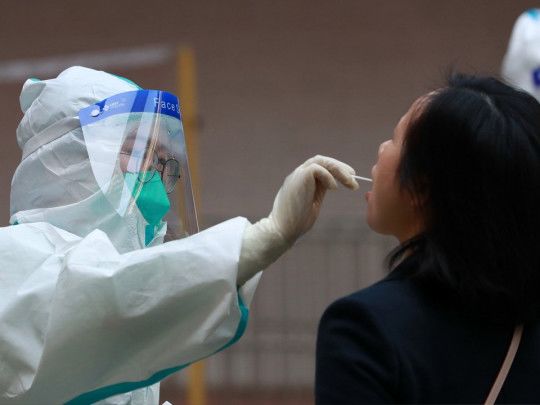
Anal Covid swabs are now compulsory for travellers to China
The ‘humiliating’ procedure involves a sterile cotton swab, which looks like a very long ear bud, being inserted 3cm to 5cm into the anus before being gently rotated out.
Beijing claim it is a more accurate way of testing whether someone has Covid, compared to the traditional method which involves samples being taken from the nose and throat.
Anal tests can ensure infections are spotted, since coronavirus traces can be detectable in the anus for longer than in the respiratory tract, according to Chinese doctors.
Some international arrivals have already had to take an anal test before being allowed to leave quarantine. The Japanese government complained about the procedure this week, saying its citizens had been subjected to ‘great psychological pain’.
Beijing is now expanding the use of the swab tests to airports, including in Beijing and Shanghai although officials are under pressure to make compromises, according to The Times.
South Korean visitors can now submit stool samples instead of ‘Chinese authorities taking them directly’, Choi Young-Sam, a spokesman of the South Korean foreign ministry, said on Tuesday.
 Japan said the tests had left its citizens with ‘great psychological pain’
Japan said the tests had left its citizens with ‘great psychological pain’
Last month, Vice quoted a State Department official as saying U.S. diplomats had complained after receiving the tests. The Chinese foreign ministry rejected this report.
Doubts have been raised by scientists over whether the test really is more effective. A positive result does not necessarily mean the person tested can spread the virus, as inactive traces unable to replicate or infect others can also show positive, Jin Dongyan, a virology professor at the University of Hong Kong said.
While the virus can be present longer in the stool than in nasal samples, that has no clinical relevance as patients in that stage of recovery no longer pose infection risks, said an expert in Europe who spoke on condition of anonymity.
In a statement on Thursday, the Chinese foreign ministry said the virus prevention and control measures China was taking were based on science.
The World Health Organization (WHO) recommends testing respiratory tract specimens, where possible, to diagnose respiratory diseases because they give the best samples, spokesman Christian Lindmeier said.
‘Faecal samples may offer an alternative testing material, especially in patients with gastrointestinal symptoms,’ he said, but they are ‘less likely than respiratory samples to be positive in the first week of symptoms.’
 Samples for
Samples for 









